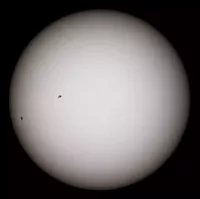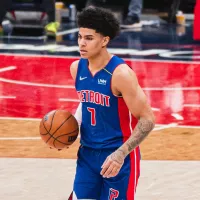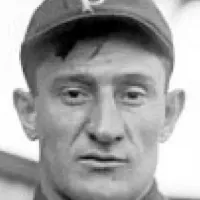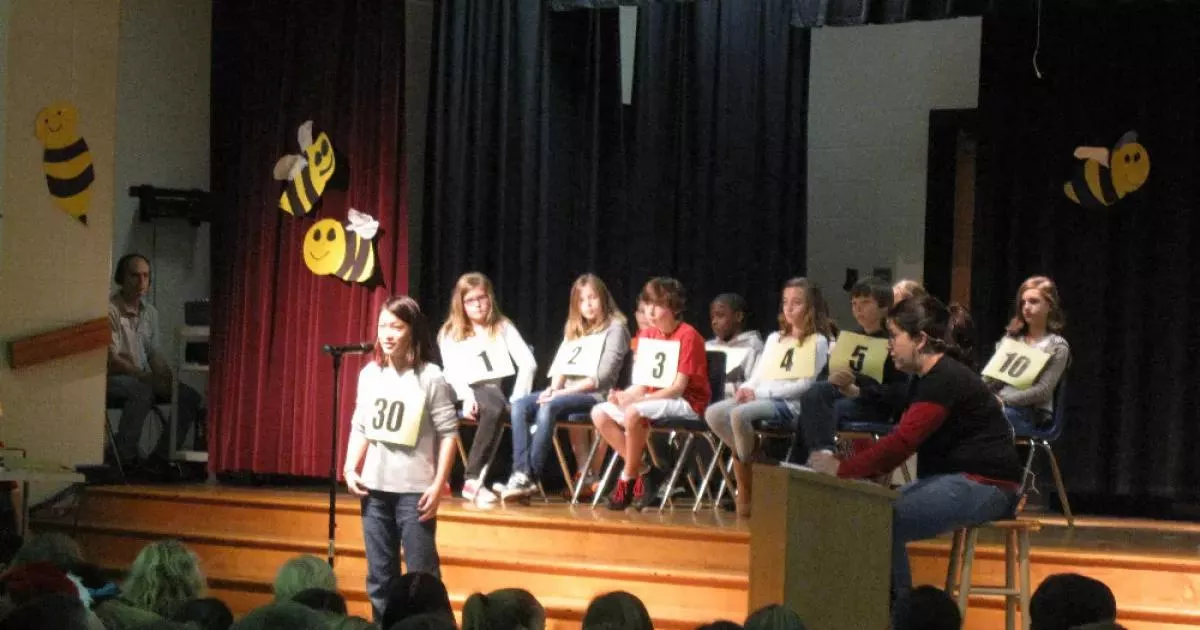1908: First National Spelling Bee
In 1908, the NEA organized the first national spelling bee in Cleveland. Marie Bolden, a young Black girl from Cleveland, won the competition.
1925: The Start of the Annual United States National Spelling Bee
The annual United States National Spelling Bee was first held in Washington, D.C. in 1925. The very first winner of this national event was eleven-year-old Frank Neuhauser.
1941: Scripps Howard News Service Acquires Sponsorship
In 1941, sponsorship of the national spelling bee was taken over by the Scripps Howard News Service, and the name was changed to the Scripps Howard National Spelling Bee. The name was later simplified to the Scripps National Spelling Bee.
1950: Creation of the Consolidated Word List
Scripps began compiling a list of all words used in the National Spelling Bee dating back to 1950, creating the Consolidated Word List.
1987: The Spelling Bee of Canada is Started
The Spelling Bee of Canada was started in 1987 in Toronto, Ontario.
1990: Dutch and Flemish Spelling Bee
The Dutch and Flemish communities started organizing a yearly spelling bee in 1990.
1991: Televised Spelling Bee
The Dutch and Flemish spelling bee was first broadcasted on television in 1991.
1996: The National Senior Spelling Bee Begins
The very first National Senior Spelling Bee was held in 1996 in Cheyenne, Wyoming. This competition, sponsored by the Wyoming AARP, is open to anyone 50 years or older. Maria Dawson is the only contestant to have won two years in a row.
2001: New Era Foundation Spelling Bee
The New Era Foundation spelling bee was first held in Lagos State in 2001. This annual event includes competitors from all public primary and secondary schools in Lagos State. The prizes awarded to the winners include cash, a trip to Finland, and the opportunity to serve as a one-day governor.
2005: International Competitors Join the National Spelling Bee
For the first time, in 2005, contestants from Canada and New Zealand were included in the National Spelling Bee.
2005: Postmedia Canspell National Spelling Bee is Started
The Postmedia Canspell National Spelling Bee was started in 2005. This Canadian spelling bee, affiliated with the Scripps National Spelling Bee, is held annually with competitors from all 10 provinces.
2006: National Spelling Bee Championship Rounds Broadcast Live on ABC
Beginning in 2006, the championship rounds of the National Spelling Bee were broadcast live on ABC.
2006: Introduction of "Spell It!"
In 2006, the Scripps National Spelling Bee introduced a new study list called "Spell It!", replacing the previous "Paideia" list.
2008: The South Asian Spelling Bee is Started
The South Asian Spelling Bee was launched in 2008. Open to contestants between 8 and 14 years old, this annual event searches for the next South Asian-American spelling champion.
2008: Spelling Bee Contest Started at Mubarak al-Kabir Educational Area
The spelling bee contest in the Mubarak al-Kabir Educational Area began as an experiment in 2008, with fourth and fifth grade students at the Thabet Bin Zaid Primary School for Boys.
2009: The Times Spelling Bee
In 2009, The Times newspaper launched an annual spelling bee competition for schools.
2009: Update to "Spell It!"
The 2009 edition of "Spell It!" was published, featuring 1155 words, with 911 basic words and 244 challenge words.
2009: Spelling Bee Contest Continued at Mubarak al-Kabir Educational Area
The spelling bee contest at the Thabet Bin Zaid Primary School for Boys in the Mubarak al-Kabir Educational Area was deemed successful and expanded to the entire educational area.
2010: The Mubarak Al-Kabeer Educational Area Spelling Bee Expands
In 2010, the spelling bee in the Mubarak Al-Kabeer Educational area was expanded to include 27 schools and approximately 2700 students.
2011: Mubarak Al-Kabeer Educational Area Spelling Bee Continues to Grow
By 2011, the spelling bee in the Mubarak Al-Kabeer Educational Area had grown to include 27 schools and approximately 2700 students.
2011: The South Asian Spelling Bee Tours 10 U.S. Cities
In 2011, the South Asian Spelling Bee toured 10 cities in the United States and was broadcast globally on the Sony Entertainment Television Asia satellite channel.
2012: Mubarak Al-Kabeer Educational Area Spelling Bee Continues to Grow
In 2012, 30 schools and 200 words were included in the Mubarak Al-Kabeer Educational Area spelling bee.
2012: The Daily Star and Champs21.com Start a Televised Spelling Bee
In 2012, the English-language newspaper, The Daily Star, and e-learning portal, Champs21.com, partnered to organize a televised spelling bee in Bangladesh. Open to students in grades six through ten, contestants compete through their schools and the Champs21 website.
2012: The Spelling Bee of Canada Celebrates its 25th Anniversary
In 2012, the Spelling Bee of Canada celebrated its 25th anniversary by hosting a Canadian Invitational Bee.
2013: Mubarak Al-Kabeer Educational Area Spelling Bee is Officially Authorized
In 2013, the spelling bee in the Mubarak Al-Kabeer Educational Area, now known as the Kuwaiti Spelling Bee, became an officially authorized contest.
2014: Kuwaiti Spelling Bee Held at Sabah AL-Salem Primary school
In 2014, the Kuwaiti Spelling Bee was held at the Sabah AL-Salem Primary school and included 33 schools.
2014: Kuwaiti Spelling Bee Continues to Grow
The Kuwaiti Spelling Bee continued to grow in 2014, with 31 schools participating, and the word list containing 260 words.
2015: ELT General Supervision Decides to Make the Kuwaiti Spelling Bee a National Event
Due to the success of the Kuwaiti Spelling Bee, the ELT General supervision decided to make the contest a national event, known as the Kuwait National Spelling Bee, beginning in the 2015-2016 school year.
2015: Start of Amco Spelling Bee
In 2015, Advanced Methods Corporation (Amco), a U.S. based company, began organizing annual international spelling bees for schools enrolled in their English language learning system in Latin America.
July 2016: The First African Spelling Bee
The first African Spelling Bee was held in July of 2016 with contestants from nine different countries.
2016: End of the Dutch and Flemish Spelling Bee
After 26 years, the annual Dutch and Flemish spelling bee was discontinued in 2016.
2016: The ELT General Supervision Decides to Make the Kuwaiti Spelling Bee a National Event
Due to the success of the Kuwaiti Spelling Bee, the ELT General supervision decided to make the contest a national event, known as the Kuwait National Spelling Bee, beginning in the 2015-2016 school year.
2016: The Fourth Season of Bangladesh's Spelling Bee
The fourth season of Bangladesh's televised spelling bee was held in 2016.
2017: The English Language Department in Jeddah Holds its First Spelling Bee
In 2017, the English Language Department in Jeddah (ELDJ) held its first spelling bee, called Spell Saudia. This three-round event is held at the end of the academic year.
2018: The Second Annual Spell Saudia is Held
The second annual Spell Saudia, the three-round spelling bee organized by the English Language Department in Jeddah, was held at the end of the 2018 academic year.
August 2019: First Spelling Bee in Vanuatu
August 2019 marked the first spelling bee competition in Vanuatu, with six primary schools and 36 students participating.
2020: Miss Jemimah Marcus Wins the New Era Foundation Spelling Bee
Miss Jemimah Marcus, from Angus Memorial Senior High School in Shomolu Lagos, won the 2020 New Era Foundation Spelling Bee.
Mentioned in this timeline

Sony is a Japanese multinational conglomerate based in Tokyo Its...
New Zealand is an island country in the southwestern Pacific...

Washington D C is the capital city and federal district...

News encompasses information about current events disseminated through various media...
Canada is a North American country the second largest in...

A star is a self-gravitating luminous plasma spheroid The Sun...
Trending

55 minutes ago Killian Hayes inks 10-day contract with Kings, reviving NBA career.

55 minutes ago Honus Wagner T206 baseball card fetches millions at auction, breaking records again.
55 minutes ago Iowa Hawkeyes face Wisconsin Badgers: Predictions, odds and keys to the game.

55 minutes ago Canadians face gastro outbreak in Cancun resort; hotel demands NDA for treatment.

56 minutes ago Bridgeman Leads McIlroy by Six Shots at Genesis Invitational: Inaugural Win?

2 hours ago Isaiah Joe to start for Thunder; Williams comes off bench, joins first unit.
Popular

Jesse Jackson is an American civil rights activist politician and...

Barack Obama the th U S President - was the...

Bernie Sanders is a prominent American politician currently serving as...

Michael Joseph Jackson the King of Pop was a highly...

Ken Paxton is an American politician and lawyer serving as...
WWE Raw a professional wrestling television program by WWE airs...
